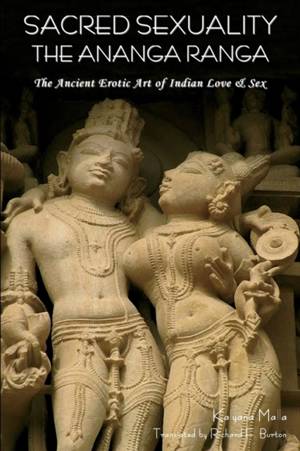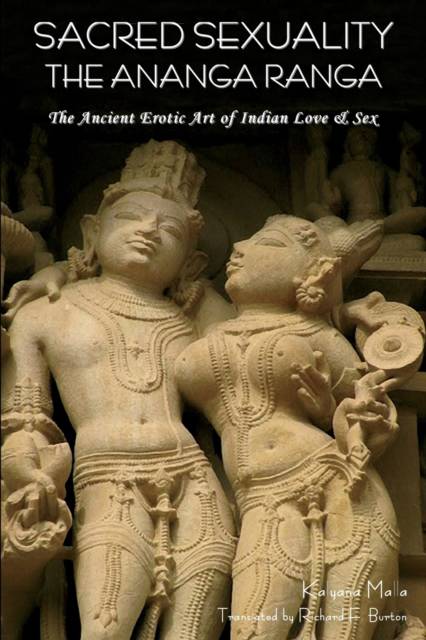
- Retrait gratuit dans votre magasin Club
- 7.000.000 titres dans notre catalogue
- Payer en toute sécurité
- Toujours un magasin près de chez vous
- Retrait gratuit dans votre magasin Club
- 7.000.0000 titres dans notre catalogue
- Payer en toute sécurité
- Toujours un magasin près de chez vous
Sacred Sexuality
The Ananga Ranga or the Ancient Erotic Art of Indian Love & Sex-
Kalyana Malla
Livre broché | Anglais
17,95 €
+ 35 points
Format
Description
The Ananga Ranga (Stage of Love) or Kamaledhiplava (Boat in the Sea of Love) is an Indian sex manual written by Kalyana Malla in the 15th or 16th century AD. The poet wrote the work in honor of Lad Khan, son of Ahmed Khan Lodi. He was related to the Lodi dynasty, which from 1451 to 1526 ruled India. Later commentators have said it is aimed specifically at preventing the separation of a husband and wife. This work is often compared to the Kama Sutra, on which it draws. It was translated into English in the year 1885, under the editorship of Sir Richard Francis Burton . "Satisfaction and enjoyment comes for a man with possession of a beautiful woman. Men marry because of the peaceful gathering, love, and comfort and they often get nice and attractive women. But the men do not give the women full satisfaction The reason is due to the ignorance of the writings of the Kamashastra and the disdain of the different types of women. These men view women only from the perspective of an animal. They are foolish and spiritless". The work was intended to show that a woman is enough for a man. The book provides instructions in how a husband can promote the love for his wife through sexual pleasure. The husband can so greatly enjoy living with his wife, that it is as if he had lived with 32 different women. The increasingly varied sexual pleasures are able to produce harmony, thus preventing the married couple from getting tired of one another. In addition to the extensive catalogue of sexual positions for both partners, there are details regarding foreplay and lure.
Spécifications
Parties prenantes
- Auteur(s) :
- Traducteur(s):
- Editeur:
Contenu
- Nombre de pages :
- 104
- Langue:
- Anglais
Caractéristiques
- EAN:
- 9781618951281
- Date de parution :
- 17-10-13
- Format:
- Livre broché
- Format numérique:
- Trade paperback (VS)
- Dimensions :
- 152 mm x 229 mm
- Poids :
- 163 g

Les avis
Nous publions uniquement les avis qui respectent les conditions requises. Consultez nos conditions pour les avis.






